Staff Spotlight: Communications Assistant Kira Omans

Kira joins Sahiyo with a background in humanitarian advocacy, communications, community outreach, and storytelling. She completed her B.F.A. with a concentration in Stage and Screen Performance and a Communications minor from George Mason University. She also works as an activist fighting for adoptee rights. Kira is dedicated to Sahiyo’s mission of ending female genital cutting, and she is passionate about leveraging her experience to further this important message. When and how did you first get involved with Sahiyo? I first started working with Sahiyo in early October 2024! When I read about Sahiyo’s mission, it really resonated with me, as I already do a lot of advocacy work and community outreach. I was excited to apply for this position because it meant that I could use my previous experience to contribute to the important mission of ending female genital cutting (FGC) worldwide. What does your work with Sahiyo involve? As the Communications Assistant, I work with Communications Coordinator, Kristel Mendoza to create social media content and strategize campaign releases. We also provide support in organizing Sahiyo’s fundraising and events. I have enjoyed meeting Sahiyo’s team members and volunteers, who have all been warm and welcoming! How has your involvement with Sahiyo impacted your life? I have learned so much about the practice of FGC in the short time I’ve been with Sahiyo. Before I applied to this organization, I had no idea that FGC occurred in the US at all. I feel better equipped to help bring more awareness to FGC, and I’m more passionate about Sahiyo’s mission of ending FGC, and working toward creating a culture that values consent as well as the rights of children and women. I look forward to continuing to learn from survivors and activists as I continue to work with Sahiyo. What words of wisdom would you like to share with others who may be interested in supporting Sahiyo and the movement against FGC? Do not hesitate! Sahiyo fosters an approachable and safe community. There are so many opportunities, big and small, to get involved. I firmly believe that education is a vital first step toward actionable and sustainable change, so taking the time to learn more independently is also creating change. Any amount of support contributes to the mission of ending FGC and creating a safer world for women and children.
Sahiyo staff spotlight: Editorial Coordinator Sheena Vasani
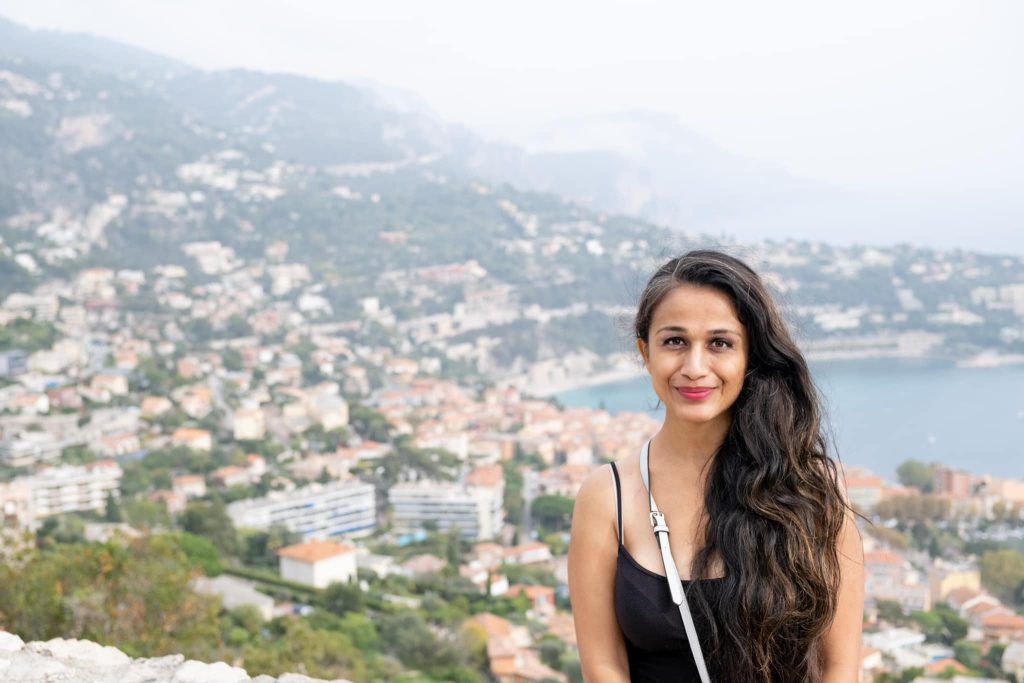
Sheena Vasani joined Sahiyo as its Editorial Coordinator in January 2024. She is a journalist with over a decade of experience working for major media outlets, startups, and charities. A strong believer in the power of the written word to enact social change and heal, she has gone viral multiple times for her work on South Asian mental health issues. When and how did you first get involved with Sahiyo? I actually stumbled upon Sahiyo years ago while launching a mental health section as an activist writing for a South Asian publication called Brown Girl Magazine. Mariya had contributed a poignant blog about FGC that touched me deeply, so I started following Sahiyo on social media. And then as the years went, a series of events led me to pursue other passions in tech journalism. And then one day, like five billion years later, I saw a job listing for the position. It was perfect timing, because I’d just been thinking how much I wanted to involve myself more with feminist initiatives again, and so of course I immediately jumped on the opportunity. Like, literally! It was a Saturday and I was about to hop into the shower, but instead jumped back in bed and started working on my application (don’t worry, I eventually showered). What does your work with Sahiyo include? So many things! My work involves interviewing survivors and allies as well as writing and editing blog posts, but it also includes outreach, brainstorming ideas, and other related tasks. I’m also currently working on formulating a larger, data-driven strategy for the editorial team so we can make even more impact! How has your involvement with Sahiyo impacted your life? It’s only been four months but it has been transformative, honestly. I’ve not experienced FGC/M, but I do know what it’s like to experience trauma and suffer in silence because of South Asian cultural norms rooted in sexism. I can empathize with that sense of shame and stigma as well as that sense of isolation. Through each meeting I have, every person I virtually meet, and every story I read, I feel like I heal a little more and become a better person. So many of the individuals I’ve interviewed leave me with a sense of awe and inspire me, as well, including the ones who are just starting their healing journeys. Despite their pain, they’re not just trying to survive – they’re trying to thrive. Each has gone through the depths of hell and yet have risen from the ashes, lighting up and changing the world with that fire. It’s so moving to witness, and there have been times when it’s reignited a similar flame within me when I’ve felt low. What’s beautiful, too, is that my work with Sahiyo has sparked some really great conversations about gender-based violence in South Asian communities with my Mom, who I am a caregiver for as she has Parkinson’s Disease. Like a lot of South Asians, my parents were brought up in East Africa. My Mom knew girls who had gone through FGC, but it was just one of the many forms of gender-based violence going on in her community during that time (think like, late 40s, early 50s – so end of World War 2 and around when the British just left India, so very, very different times!). So she never got the space to talk about how that impacted her, and she didn’t even know what the official, modern term was for it until I started this job. She knows what it is now, though, and it’s inspired a little sense of activism in her too. My Mom has endured a lot as a quiet Indian housewife from more traditional times that’s left a lot of scars, so it’s beautiful watching her get angry as hell about FGC, challenge outdated beliefs, and ultimately heal herself – and the South Asian culture, to an extent – as we have these discussions.
Sahiyo staff spotlight: Training and Technical Assistance Coordinator Aries Nuño
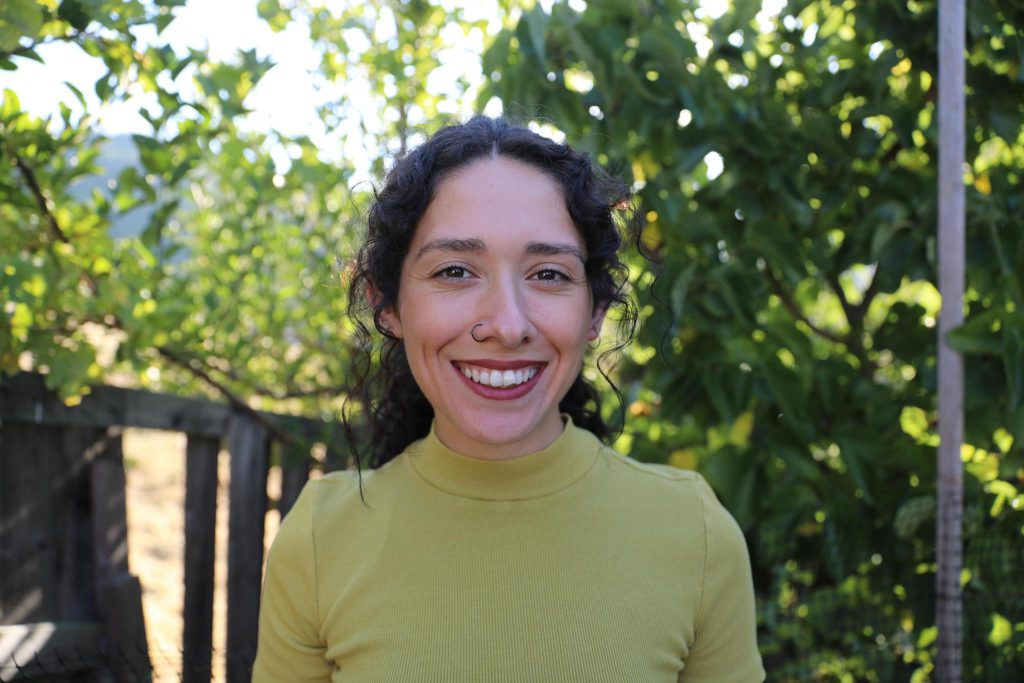
When and how did you first get involved with Sahiyo? My engagement with Sahiyo began through my interest in addressing gender-based violence, specifically focusing on FGM/C, within the public health sphere. My initial involvement as a volunteer was driven by the opportunity to apply my public health knowledge to Sahiyo’s efforts. Over time, my increasing understanding of FGM/C’s complexities and my desire for a more direct role in the organization’s initiatives led me to the Training and Technical Assistance Coordinator position. This role has allowed me to use my skills more effectively, contributing to the development and execution of Sahiyo’s mission. What does your work with Sahiyo involve? As the T&TA Coordinator, while my role involves creating training programs, I prioritize fostering relationships and building trust with community stakeholders to ensure our efforts are truly collaborative and responsive. Some of our training initiatives are structured to engage with healthcare professionals, gender-based violence (GBV) providers, and the local community each bringing unique challenges and perspectives to the table. Part of my work is also rooted in collaborating with a variety of partners, including NGOs, government entities, and directly with survivors, to enhance FGM/C prevention and raise awareness effectively. Additionally, I am involved with creating educational materials that serve both individuals and organizations, to provide comprehensive knowledge and practical tools, fostering an inclusive, culturally sensitive, and trauma-informed approach to addressing FGM/C. Finally, one key program I support is Sahiyo’s Voices to End FGM/C initiative (I participated in the mort recent Voices Conhort in 2023). This program brings together survivors, activists, and advocates from across the globe by bringing them together to share and heal from FGM/C, connect and grow as leaders, and create short videos sharing their experience with the practice. How has your involvement with Sahiyo impacted your life? Working with Sahiyo has deepened my understanding of FGM/C as a complex issue that requires a comprehensive and collaborative approach to address effectively. Moving into a professional capacity within the organization has expanded my view of the challenges and possibilities in this field. It has underscored the importance of education, advocacy, and partnership in driving change. The resilience of survivors and the commitment of advocates continue to inspire my work. My hope is for Sahiyo’s programs to be recognized as effective and empathetic resources in the global effort to end FGM/C. What words of wisdom would you like to share with others who may be interested in supporting Sahiyo and the movement against FGC? Respecting culture and tradition is crucial when addressing the practice of FGM/C. It is important to understand that FGM/C is often perpetuated by cultural and societal attitudes and is deeply rooted in the beliefs and traditions of communities that practice it. As an outsider to the practice, a judgmental approach can alienate the very communities we hope to engage. It is essential to engage with communities in a respectful and culturally sensitive manner in order to work collaboratively and to create solutions that are sustainable and in line with their values and beliefs. By doing so, we can help to create lasting change and promote gender equality while respecting cultural diversity.
Staff Spotlight Community Engagement Coordinator: Samman Masud

Samman received a Bachelor’s in International Relations and her Master’s in Interdisciplinary Studies with a focus in Human Rights and Women & Gender Studies from George Mason University. Her graduate research explored the intersection of human rights advocacy and social media platforms in light of the #Metoo movement and the possibilities of transnational feminist solidarity networks in the digital media age. Samman is driven by her passion for local and global social justice movements and imagines a feminist future, one that is free from patriarchal violence and emancipatory for all people. In the past, Samman has been affiliated with Amnesty International USA in various capacities, where she supported campaigns on violence against women, migrant and refugee rights, death penalty and other human rights violations in the U.S. and abroad. Samman is excited to utilize her experiences in human rights advocacy, particularly her strengths in gender justice and intersectional feminist activism to address female genital cutting in her new role as the community engagement coordinator for Sahiyo. When and how did you first get involved with Sahiyo? I first got involved with Sahiyo in the summer of 2023 when as the Community Engagement Coordinator. Previously I had briefly explored the issue of FGC in various classes during graduate school while studying Women and Gender Studies, but I had never studied the topic as exhaustively as I would have liked to. In one of my courses, I read an academic paper where sociologists presented FGC as an issue of feminist agency and choice, likening it to cosmetic plastic surgeries. Other times, I found the sensationalized framing of FGC by human rights groups and legacy media to be problematic in how it recreated racist tropes about communities where FGC is practiced, further marginalizing at-risk groups and alienating them. So when the opportunity at Sahiyo came along, I became eager at the prospect of working for a survivor-led organization, since community-led movements can challenge false narratives and include a culturally sensitive approach that is vital in the field of gender-based violence work. What does your work with Sahiyo involve? I’m responsible for overseeing the Activists Retreat program, an annual in-person as well as a virtual event in which anti-FGC activists and survivor-advocates come together from all over the U.S. to discuss activism strategies on how to better mobilize more advocates working to address FGC within South Asian communities. In addition to assisting with the logistics of the retreat planning, I dedicate the rest of my time fostering relationships with a community of activists and assisting them in their anti-FGC activism. I do this by supporting their advocacy needs, whether it is through virtual alumni network events like quarterly meet-ups or book club meetings, or providing them with essential resources and news about FGC-related developments. Bhaiyo, our male engagement program is another project I support. In this program I oversee our male ally network and build new relationships with individuals or activists who want to be allies in our mission to end FGC. I hope to grow this network significantly, so a larger community of men can discuss the harmful impacts of FGC within their circles, especially if they belong to communities where FGC is practiced. Gender-based violence is a function of patriarchy, and without male allies who can be agents in disrupting patriarchal norms, our work would be impossible. How has your involvement with Sahiyo impacted your life? Before Sahiyo, my knowledge about FGC was limited and only theoretical. Now I get to see firsthand the practical implications of FGC, in my encounters with survivors and how FGC has profound long term psychological and medical consequences. Through my daily engagement with Sahiyo’s collaborations and with other sister organizations and other growing partnerships, I’m now more aware of FGC advocacy, and the landscape of gender-based violence work in general, as well as of the many resources that are available to communities where FGC is prevalent. As such, the need to publicize Sahiyo’s work becomes all the more urgent. Finally, my understanding of activism continues to grow from my interactions with different activists throughout the year. I find that all types of activism are impactful, as our Executive Director, Mariya Taher emphasizes understanding “activism on a spectrum” and how it can look different for each activist. Similarly, I was not aware of the concept of ‘public vs. private’ activism that Sahiyo’s work and activists place immense value on. Modern day digital activism, albeit critical to mobilizing masses for human rights issues, sometimes has confined us to thinking of activism only in terms of likes, tweets and viral stories. However, private activism can be a just as powerful tool in educating members of communities about a particular issue, as I saw in my first Activists Retreat in September 2023, where the privacy of an insular activist community was respected and led to important conversations about FGC prevalent within the Bohra community. As such, both public and private activism can drive incremental change and lead to progressive reform. The personal is political, indeed. What words of wisdom would you like to share with others who may be interested in supporting Sahiyo and the movement against FGC? The movement against FGC is equally critical as any other issue in gender-based violence work. We are working to mobilize a large body of activists to bring our movement to the forefront and push the remaining states to pass legislation banning FGC in the U.S. I encourage anyone interested in advancing women’s rights and gender justice to explore Sahiyo’s anti-FGC work as part of the larger gender based violence effort. Our small but mighty team at Sahiyo and the network of amazing volunteers and interns welcome and support all advocates, regardless of their expertise about FGC, to join this important cause.
2024 begins with team transitions at Sahiyo
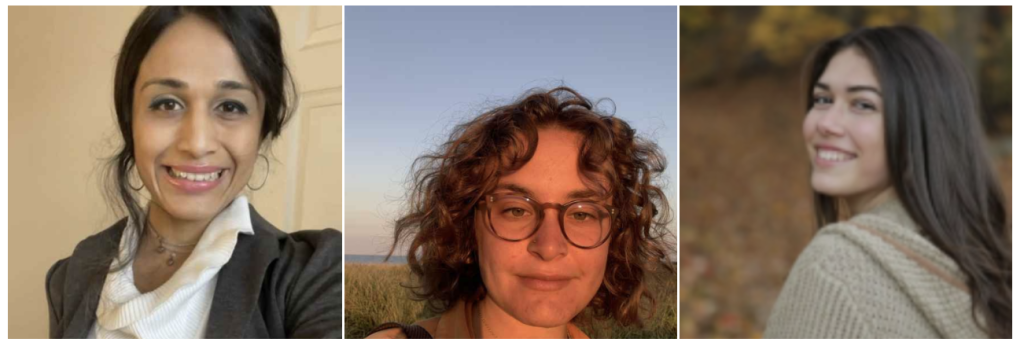
As we settle into 2024, the Sahiyo family is excited to welcome Sheena Vasani as our new Editorial Coordinator. Sheena, a strong believer in the power of the written world to enact social change and heal, has gone viral multiple times for her work on South Asian women’s rights and mental health issues. Rachel Wine, Sahiyo’s former Editorial Coordinator, will transition into the role of Research Coordinator. She is eager to lead the efforts in disseminating Sahiyo’s original research findings from the Critical Intersections project, and support partnerships with students and independent researchers. Lastly, we say farewell to Programs Associate Meg Sinnott, who after nearly two years supporting the efforts of Sahiyo’s policy work and various programs, transitioned off of the team last month. We wish her luck in all future endeavors!
Sahiyo staff spotlight: Editorial Assistant Megan Seaver
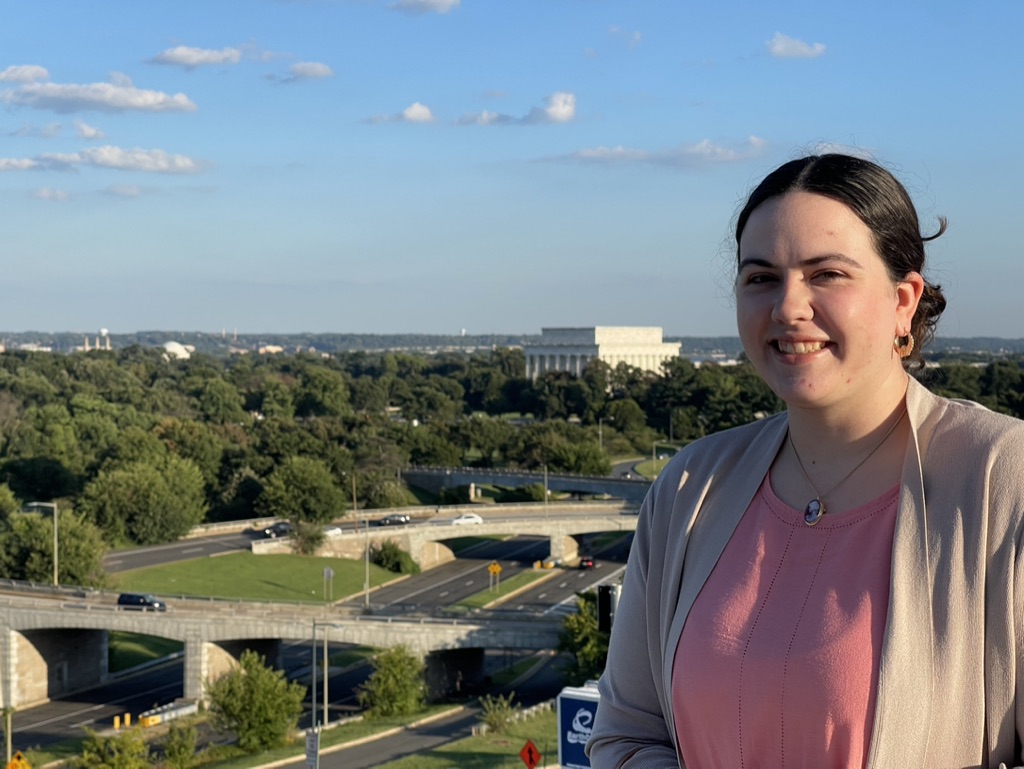
Megan Seaver is an undergraduate student at Emmanuel College, pursuing a bachelor’s degree in writing, editing, and publishing, as well as minors in political science and gender studies. Throughout college she has been a part of student organizations, Her Campus and WGS, that help women to speak their truth and to support one another. She believes that being open to hearing the stories and experiences of all women will make it easier to create a safer and more accepting world for all people. When and how did you first get involved with Sahiyo? I first found out about Sahiyo while searching for a summer internship online during my junior year of college. I knew I wanted to do something that would have a positive impact on people’s lives, while also fulfilling my passions for writing and storytelling. I was immediately drawn to the position of Editorial Intern, which was described as working to help share survivors stories on the blog. Once in the position, I began supporting the blog and conducting outreach with survivors as well as Sahiyo’s volunteers to help share their stories. What was it like transitioning from Editorial Intern to Editorial Assistant? The biggest change for me was being more involved with the process of interviewing survivors. As an intern, I had mostly worked with transcripts from previously conducted interviews with survivors and activists, and used these to write up blogs. As Editorial Assistant, I was tasked with conducting interviews myself, in addition to writing up the blogs. At first I definitely felt apprehensive about the interviewing process, mostly because I wanted to make sure that the survivors felt comfortable and supported during the interview, and I didn’t want to let them down. However, after conducting a few interviews with the help of Editorial Coordinator Rachel Wine, as well as doing some on my own, I began to feel more and more confident in my ability to conduct the interviews in a successful and supportive way. Interviewing also increased my knowledge and understanding of FGC as a whole, and has left me feeling more willing to speak and write on the topic for my work at Sahiyo, but also in my personal life. FGC wasn’t something that was talked about in my own family and friend groups, or even in my academic settings. FGC is also not something that is widely known about in the United States, even though the practice occurs here. I think that time spent at Sahiyo has opened me up speaking more on topics and issues that I feel strongly about, including FGC, and that confidence has only grown as I have transitioned into being the Editorial Assistant. What else does your work with Sahiyo include? A major category of my work falls into creating Sahiyo’s monthly newsletter. Every month, Sahiyo puts out a newsletter highlighting upcoming events, survivor stories, and reflections from past events. This work is a team effort, with members from Sahiyo’s staff writing information and reflections, and members of Sahiyo’s communities contributing as well. The newsletter also gives us a chance to highlight Sahiyo’s team members, who help write the introduction for the newsletter and contribute spotlights about their work. Creating the newsletter over the past three months has allowed me to hone my editing and writing skills, while also supporting all facets of Sahiyo’s work. How has your involvement with Sahiyo impacted your life? Sahiyo has impacted my life in numerous ways. Before my internship, I didn’t have an extensive knowledge of FGC, and the effects that the practice had on the lives of survivors. I’ve always been passionate about supporting women’s voices and stories, but there was definitely a learning curve before I felt it was appropriate for me to speak and write about FGC. I also feel that speaking with survivors has further instilled my belief that there is no such thing as a “woman’s problem”; a woman’s problem is a problem for everyone in society. The mission to end FGC requires support from all kinds of people, and the more people that are educated about the topic, particularly in the U.S. where the practice is not widely known but does occur, the more people who will choose to stand up and join the campaign to end FGC. From a professional standpoint, interning and now working for Sahiyo is my first step into the working world. It’s the first chance I’ve had to apply the skills and tools I’ve been developing in my college years and put them into action. Transitioning from Editorial Intern to Editorial Assistant has definitely come with more responsibilities, but being able to facilitate tasks such as the newsletter and interviews successfully has helped to boost my confidence and recognize that my skills and ideas are valuable. I am extremely grateful to the Editorial team, and the Sahiyo team as whole for supporting me and helping me learn. What words of wisdom would you like to share with others who may be interested in supporting Sahiyo and the movement against FGC? I would say that even if you don’t know a lot about FGC, but you feel empowered to help the movement, the best way to learn is by jumping in feet first. Sahiyo is an incredibly supportive and welcoming environment, and hosts numerous programs and training about FGC trauma and care throughout the year. I would also encourage people to speak about FGC to their friends and family after educating themselves; working on spreading awareness is one of the best ways to educate others on the practice.
My time at the 2023 Peer-to-Peer National ARP Convening
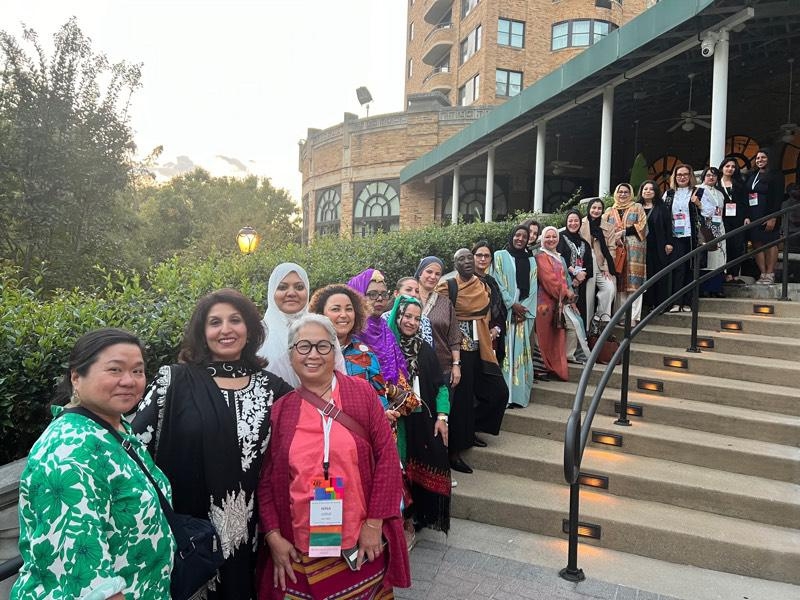
In October 2023, Sahiyo’s Community Engagement Coordinator Samman Masud as well as long-time Sahiyo volunteer and Activists Retreat planning committee member Umme Kulsoom Arif attended the 2023 Peer-to-Peer National American Rescue Plan (ARP) Convening in Washington D.C. The three-day convention welcomed representatives from over 40 non-profit organizations throughout the U.S. to join other grantees of the ARP Support for Survivors Program. Sahiyo U.S. was awarded as one of the subgrantees in April 2023 to build out its promising Activists Retreat program. A sub-grant under the 2021 American Rescue Plan Grant, the ARP Support for Survivors Program caters to culturally-specific, community-based projects for survivors of domestic violence and sexual assault from Asian and Pacific Islander (API) Communities in the U.S. and the Pacific. Leadership from various organizations led plenary sessions to address accomplishments and challenges involved in survivor-centered relief work for under-served and underrepresented communities of color impacted by gender-based violence. In addition to attending presentations and workshops, Sahiyo representatives received opportunities to network with other organizations through a variety of events including a cultural evening, an interactive Indian dance performance, a Paraguayan bottle dance, and a Native American closing ceremony to conclude the gathering. “The ARP convention was an eye-opening experience. I listened to speakers from the National Indigenous Women’s Resource Center, the Asian Pacific Institute on Gender-Based Violence, SCESA, and Ujima, among many others. I understood the impact of investment in organizations that seek to address the very unique needs of communities of color impacted by gender-based violence. Already vulnerable due to the intersecting systems of violence and power structures that continue to marginalize communities of color in the U.S., survivors often need culturally sensitive approaches to address domestic violence, sexual abuse, and female genital cutting (FGC). To hear the accomplishments and challenges of groups engaged in this work revealed the potential of grassroots level advocacy and community-led organizations. While there is a lot of work to be done in the gender-based violence space, the feminist solidarity I saw at the convention gave me immense hope about what this growing network can achieve: a future free from violence for all people.” -Samman Masud
Reflecting on the 2023 Activists Retreat
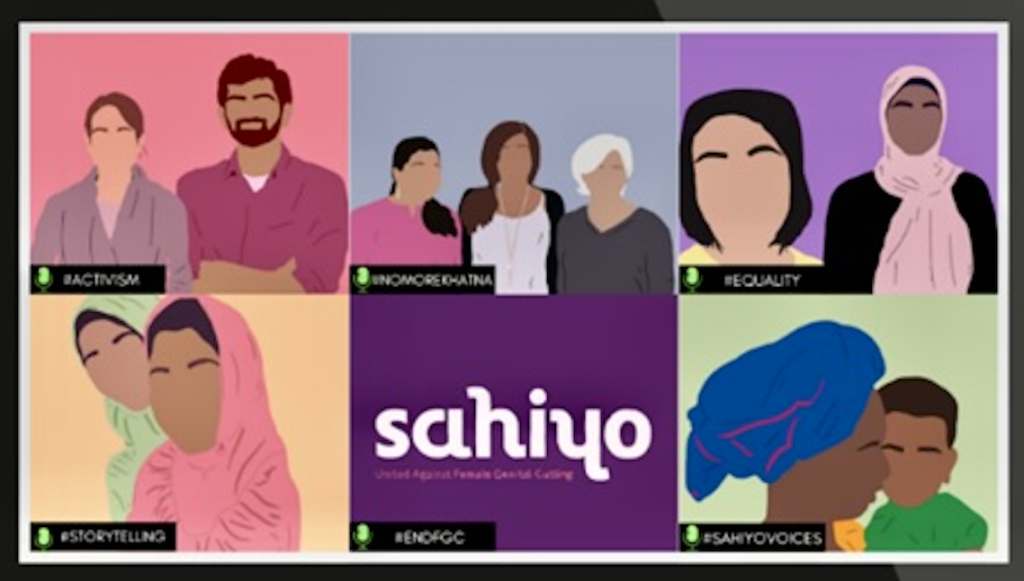
By Samman Masud In September 2023, activists, survivors of female genital cutting (FGC), and community members from the Bohra community came from all over the U.S. to gather in-person at Sahiyo’s 6th annual Activists Retreat. This three-day affair, in Atlanta, Georgia, brought together individuals belonging to the Bohra community to deepen relationships with one another, increase knowledge on FGC, and gain tools on how to advocate against FGC. This year, as in the past, the Retreat was filled with presentations, educational videos, group discussions, action planning sessions, and self-care activities. During the Retreat, survivors and community members were able to reflect on their personal experiences and connection with FGC in a safe and supportive environment, explore advocacy strategies, and discuss challenges they face in trying to discuss FGC. Having recently joined Sahiyo in August 2023 as their Community Engagement Coordinator, this was my first time attending the Activists Retreat. Although I assisted Sahiyo staff and volunteers to prepare educational materials in the weeks leading up to the retreat, I arrived in Atlanta not knowing what to expect from the attendees at the retreat. To say that the three days I spent with other activists in Atlanta were humbling and inspiring would be an understatement. While I had read academic papers and participated in discussions about FGC in class settings during graduate school, I had little knowledge about the prevalence of FGC within Bohra diaspora communities in the U.S — something I developed an in-depth understanding of from the presentations and survivor testimonies at the retreat. Listening to survivors who were Bohra recount their experiences with FGC, and other Bohra activists at the retreat reaffirmed to me the significance of community-led movements. I noticed that the activists, from various age groups and diverse personal and professional backgrounds were able to comfortably share their experiences of FGC and anti-FGC activism in a safe space–one that was void of ‘othering’ or Islamophobic narratives that are often invoked by human rights organizations when communities of color discuss gender-based violence. It was promising to see that the activists, despite their personal and professional commitments, took out time to be with other like-minded individuals to learn, and restrategize how to best address FGC within their communities to achieve lasting results. Together, we participated in workshops, engaged in difficult but important conversations, which were followed by self-care activities like journaling exercises or yoga at the patio that allowed us to unwind and relax. We concluded this year’s Activists Retreat with individualized and group action plans to improve anti-FGC advocacy efforts and left with renewed commitments for our cause. As Sahiyo develops our Activists Retreat program in the future we hope to expand this program to other communities impacted by FGC. [youtube url=”https://youtu.be/4bsrA1aW-ME”]
Sahiyo welcomes three new members to the team

We are eager to welcome three amazing women into our organization, who will allow us to build up our organization’s capacity in order to better meet our mission to end female genital cutting (FGC) and expand the scope of our work! Aries Nuño, a seasoned volunteer with Sahiyo, joins us now as our Training and Technical Assistance Coordinator. Learn more about Aries. Ming Rao brings her accounting and finance expertise to the team as Sahiyo’s Accountant. Learn more about Ming. Samman Masud is excited to utilize her experiences in human rights advocacy in her role as Community Engagement Coordinator. Learn more about Samman. Welcome to the team, Aries, Ming, and Samman!
Farewell to Programs Coordinator Catherine Cox
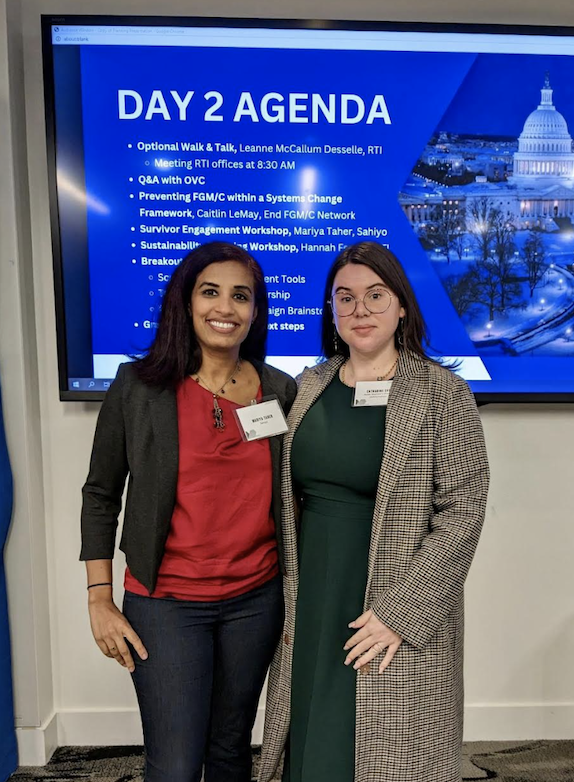
For the past three years, we have been honored to have Catherine Cox, or Cate as we know her, serve as Programs Coordinator at Sahiyo U.S. In this role, Cate saw Sahiyo’s community education and outreach program, including training and technical assistance, grow and blossom. It is thus with great excitement and some sadness too, Sahiyo wishes Cate success and luck on her next adventure! Cate will be transitioning off of Sahiyo as Programs Coordinator to journey to the United Kingdom, where she will start her Masters at the School of Oriental and African Studies at the University of London with the goal to study Human Rights Law. Cate first joined Sahiyo as a Programs Intern in 2020, while she was a freshman at Simmons College studying International Relations. Being the stellar intern that she was, after her term ended, she was offered the position of Sahiyo’s first ever Programs Coordinator; since then, she has worked to strengthen and expand the many services Sahiyo offers. Though we will miss her dearly, we are glad that Cate will remain active as a Sahiyo volunteer, and look forward to the many accomplishments she will make in the field of human rights law!
